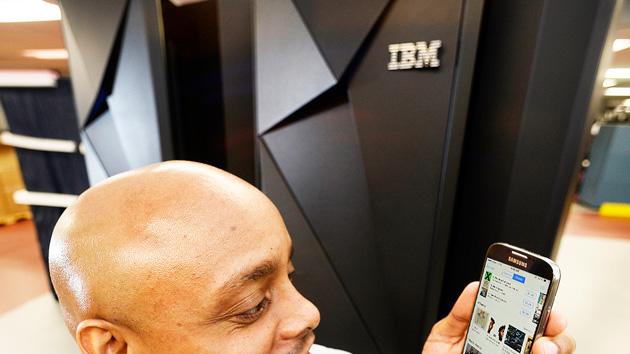mobilefirst
Latest

IBM tech finds virus-laden apps before they reach your phone
Mobile malware is bad enough by itself, but it's a nightmare at work -- one infection could put everyone's phones at risk, if not the whole business. IBM has a fix, though. A new version of its MobileFirst Protect tool now automatically looks for virus-ridden Android and iOS apps on staffers' phones, and puts any compromised device on lockdown before it can pose a threat to you or anyone else. It immediately limits access to apps and services, and it'll let your IT staff know if there's trouble. The system automatically updates its malware knowledge, too, so it shouldn't be caught off-guard by recently discovered exploits. Yes, IBM's threat tool is another form of corporate oversight, but it could prove a lifesaver if it prevents a careless coworker from wrecking your personal phone. [Image credit: IBM, Flickr]

Apple and IBM team up to put more iOS devices in the workplace
If you had any lingering notions that Apple and IBM were still bitter arch-rivals, they just got swept away. The two companies have just launched a partnership that could give iPads and iPhones a much larger presence in the workaday world. IBM has agreed to develop over 100 enterprise-grade apps solely for iOS, along with iOS-focused cloud services; it will also sell Apple's mobile gear as part of its larger solutions, and it's even handling on-site support. Apple, meanwhile, is offering a special business-friendly support plan.

Pinterest CEO Ben Silbermann: consumers will soon expect every service on every platform, mobile included
Ben Silbermann has found himself in a pretty swell spot. He's the CEO of Pinterest -- a company that was recently valued at $2.5 billion, despite not making a single cent to date. He took the stage today at D11 in Southern California, answering questions shot from Kara Swisher. One of the key points he made was on the topic of mobile. Swisher was asking about Pinterest's mobile efforts, and Silbermann suggested that in the very near future, asking such a thing would be borderline silly. "It'd be like asking a business today if they're a dot-com business," he said, suggesting that every business created in 2013 should absolutely have some sort of presence on the web. It's perhaps due to the shocking uptake of Pinterest's apps. Said Silbermann: "A growing number [of users] use Pinterest exclusively on their phone or tablet. When we released our mobile apps, we were taking bets on how long it'd take for those to surpass our web traffic. I figured it'd take a few weeks. It was literally the day it was released [that the traffic was passed]. I think it's because phones and tablets are largely always around you, whereas you're not always around a [traditional] computer." It's perhaps the token example of how consumers at large are moving away from needing a full-fledged machine at their fingertips, and the redefining of what a "computer" is for the newest generations.

